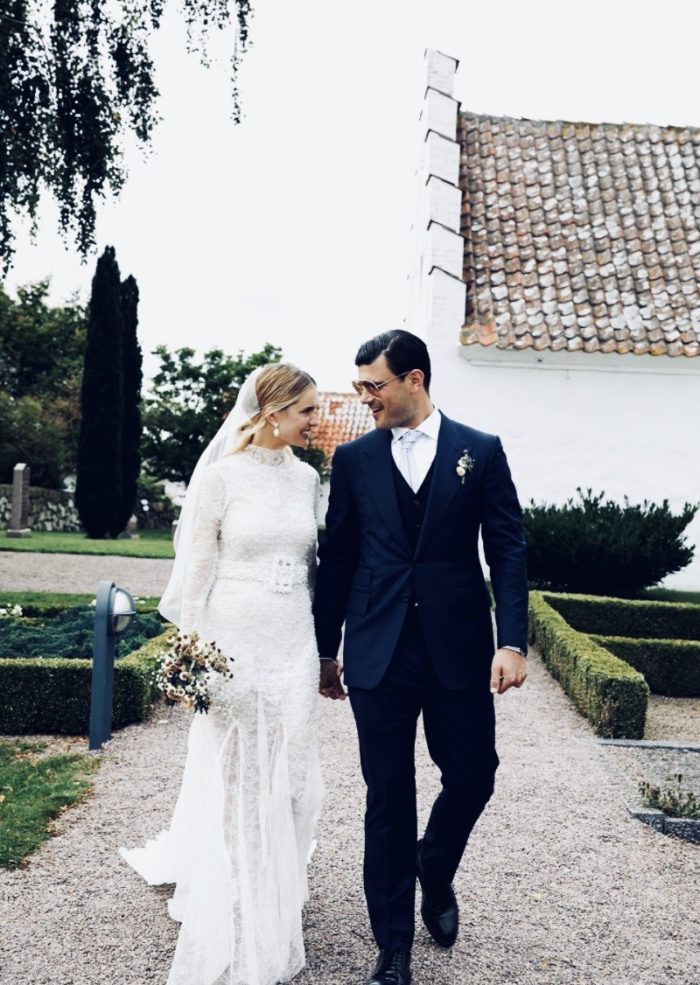You may have planned a wedding with 160 guests for this Spring, 2020. But like thousands of couples, the coronavirus put an unexpected halt to your plans. You still wanted to get married but you want to be sensitive to what people are going through. Some have lost their jobs and income. They’re concerned about their health and about traveling. Read more, ‘Weddings Will Never Be Same After Covid- And That May Be A Good Thing.’
Couples are delaying sending out wedding invitations. They’re unsure what to include and how to say it now that they have to think about social-distancing measures. You want to invite a lot of friends to celebrate us, but you don’t want people to feel uncomfortable or unsafe and aren’t sure how to say that. The coronavirus pandemic has changed the way many people look at wedding invitations. While they want to be supportive of a couple and celebrate with friends and family, they may be unsure whether to R.S.V.P. yes or just stay home. To help navigate this new terrain, we’ve called on wedding professionals and industry experts to help answer some of your wedding invitation questions.
Before booking a flight, renting a car, or slapping down a credit card for a hotel stay, here are a few important questions to consider. You’re not alone in this quandary
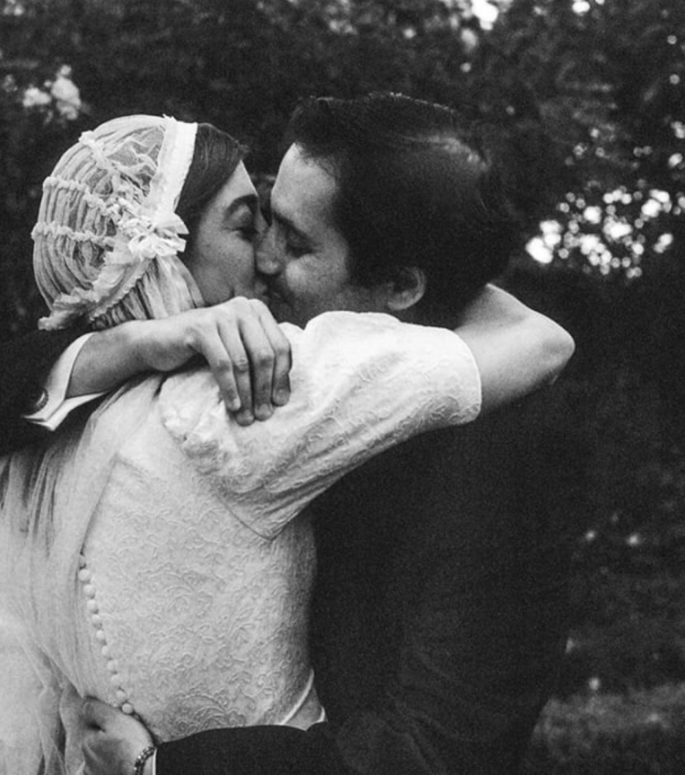
Here, Daniella Garcia (@danikid) and @StephenBorrello share an adorable moment during their intimate backyard wedding ceremony. After postponing their original date to 2021, the couple opted for a smaller, family-filled celebration in the backyard rose garden at their Toluca Lake home. She did her own makeup and kept her jewelry super simple, wearing only her mother’s pearl earrings and her engagement ring.
Image via @vogueweddings
How do I create a limited guest list without hurting people’s feelings?
The 200-person guest list you painstakingly made doesn’t have to be thrown out. But the truth is only about 10 percent can probably be invited to your in-person ceremony. Disinviting guests is the new reality.
“In these cases, honesty is the smartest approach,” said Maryanne Parker, the founder of Manor of Manners, a company for business, social and youth etiquette in San Diego, adding that simple language used to inform guests is best. “It’s perfectly reasonable to say, ‘We would be very happy for everyone to join our wedding via Zoom. Due to the pandemic, only immediate family can participate directly. We hope you’ll understand.’” Ms. Parker said this includes close friends who have become part of the family, and thus, the ceremony.
“Before Covid, people got offended if they weren’t included,” she added. “If something is out of your control, you don’t have to apologize. Right now, many people are going to be relieved rather than feel left out.”

Personalised masks are the new norm for socially distanced weddings. Image via vogueweddings.com
Should I include a Zoom link on my invitation, and is that telling people they really don’t have to come?
“Even though everything has changed, people still want the formality of a wedding and to have that memory,” said Diane Gottsman, an etiquette expert and the founder of the Protocol School of Texas, a company in San Antonio specializing in corporate etiquette training. Standards have loosened. Now it’s permissible to let them know on the invite that they can attend in either two ways, in person or via Zoom.
Include R.S.V.P. cards with the option to check off one of three boxes: I will be there in person, by Zoom, or unable to attend. A Zoom option allows guests to be involved. If the guest has the option to attend in person but accepts Zoom they probably wouldn’t have come regardless. Read more, ‘The Wedding Social Media Rules All Brides Need To Follow.’
Can I include a personalized letter to my guests with my invitation?
“Invites are going out in different formats highlighting things we’ve never done before: We’ve changed dates, locations, and for some couples, changed them twice,” said Shari Lebowitz, the owner of Bespoke Designs, a wedding invitation studio in Westport, Conn.
Since the pandemic started, Ms. Lebowitz has created what she calls comfort copy. “It’s a deeply personal note that’s included in the invitation,” she said. “It addresses how the couple is choosing to celebrate while acknowledging what is happening in the world and the level of anxiety people might be feeling.” Ms. Lebowitz says she has helped 25 to 30 couples create personalized notes for their invites. “Mostly they offer assurance and thoughtfulness,” she said. “They say, we want you there but of course we will understand if you can’t come.” It also asks guests to check the couple’s website for updates as rules and restrictions change daily. Read more, ‘Yes You Can! Plan A Wedding For Less And No-One Would Know.’
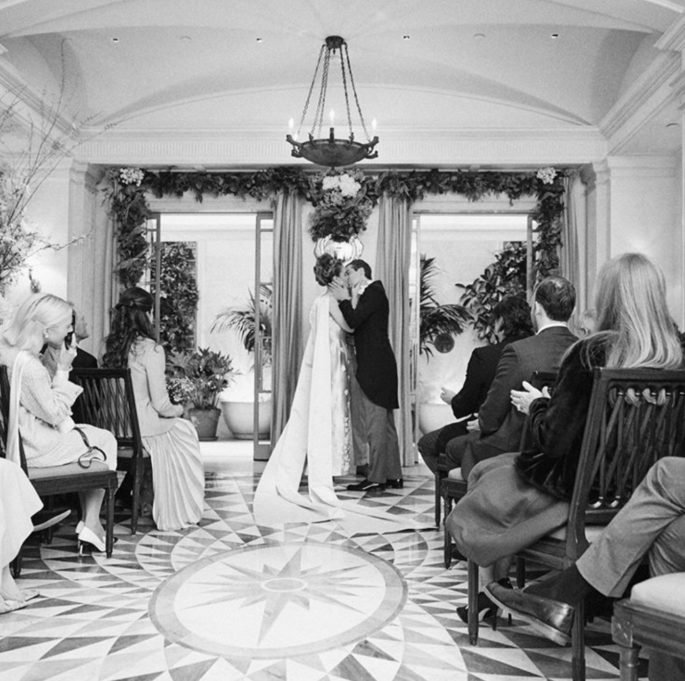
@Julia.Loomis and @SethTringale‘s first kiss as husband and wife. “I just love this photograph, it’s so full of life and I can hear in my head Édith Piaf’s Hymne à l’Amour beginning to play,” Julia shares. The couple’s intimate wedding in NYC. Image via @vogueweddings
Do I have to give guests a plus one?
This is the one time you can enjoy the freedom from having to invite those you would rather not.
How much information regarding safety protocols should I include and is it OK to add it to my invitation?
Elaine Swann, an etiquette expert and the founder of the Swann School of Protocol in Carlsbad, Calif., says the ultimate goal of etiquette is to make others feel comfortable.
“You want to share as much information and as specifically as possible.”
“Telling guests your celebration will be practicing social distancing, if you will be supplying masks and asking them to wear them throughout the wedding, along with any other pertinent information, lets guests know exactly what to expect. And what’s expected of them. Then they can make an educated decision beforehand rather than be unexpectedly confronted at the event.”
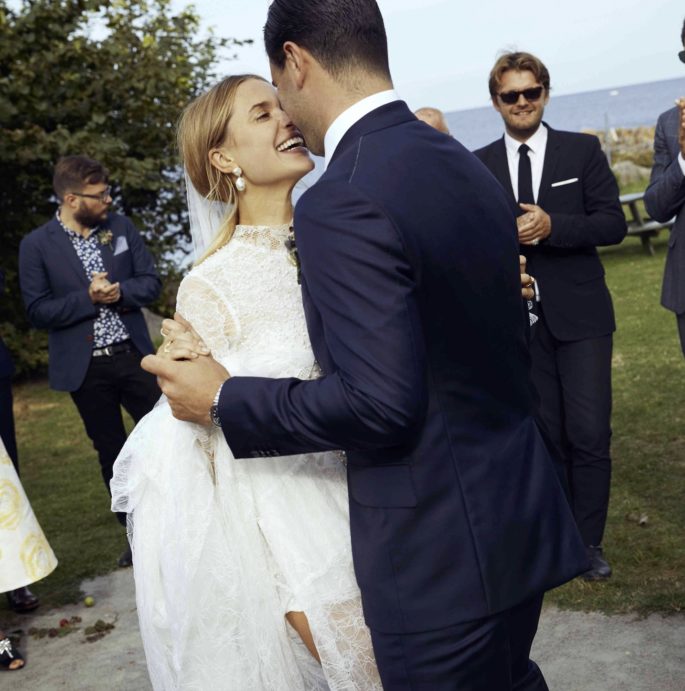
Pernille Teisbaek’s Denmark wedding via @voguewedding
Questions for the anxious wedding guest…
The coronavirus pandemic has changed the way many guests look at wedding invitations. While they want to be supportive of a couple, and celebrate with friends and family, they may be unsure whether to R.S.V.P. yes or just stay home.
1. Where am I going and how will I get there?
Most people will ask themselves, ‘Can I get there by car?,’ which we’re finding is one of the safer ways to travel because you can sanitise it, roll down the windows for fresh air, and it contains people you know. The other things people should ask: ‘Does the area I’m going to have a high or low number of cases? And will I have to sleep over?’ These are important points to consider and depending upon your comfort level will affect your answer. One more thing to consider: Some states may require you to quarantine for 14 days upon arrival or after returning home.
2. How many guests are attending and will they be tested for Covid-19?
For some invitees knowing whether there will be 25 or 80 guests in attendance may be a deciding factor. For others it’s about the health of those around you. Some couples are making it a policy that every guest and vendor they hired need to be tested and require a negative result within 48 to 72 hours in order to attend the wedding with some event planners tasked with receiving and organizing everyone’s emailed or screenshot test results.
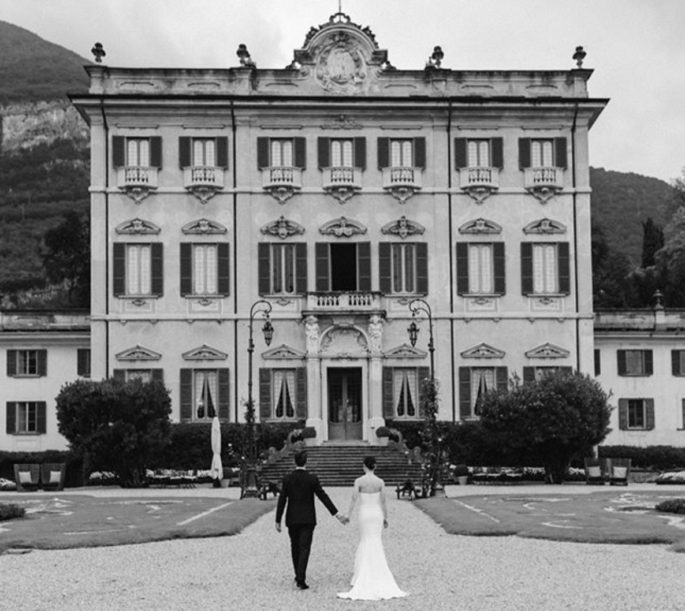
Bride, Benita Chan (@thebigchan), and groom, Grant Anderson’s (@thegranderson) captured at the Villa Sola Cabiati in Lake Como for their wedding portraits. The couple opted for their portraits to be taken before their actual wedding weekend in Milan, Italy, so they could take their time and enjoy their family and friends on an actual day. Image via @vogueweddings
3. How will the reception seating be arranged?
In some cases you may be able to request who you eat with. Many couples are letting guests say where they want to sit. This also prevents the chaos of people finding their seat that night and not feeling comfortable with where they’ve been assigned.
4. How will the wedding be structured?
Insight to the flow of the wedding will eliminate a lot of questions guests might have. Understanding the timing for different activities throughout the wedding, might give guests a peek into what time they should arrive or how long they should stay.
5. Will there be a band, DJ or dancing?
While some couples choose to have a single DJ tucked away in a corner, others are intent on having entertainment. “Those having a band are ensuring guest’s safety with Plexiglas screens that divide the band from everyone else,” Mr. Kahn said. “A good question to ask your host is, ‘If there is dancing, will social distancing be observed, and if so, who will help monitor that?’ Often when guests consume alcohol and are working up a sweat, masks come off and social distancing gets ignored.”
6. How long do I want to stay?
Anything goes right now. Some guests might stay for dinner, while others who are older or are compromised health-wise might leave right after the ceremony. Let your host know ahead of time that you might depart early, or that once the dancing starts you’ll probably go, is really helpful, too.

